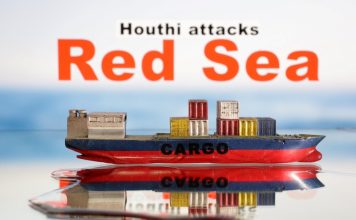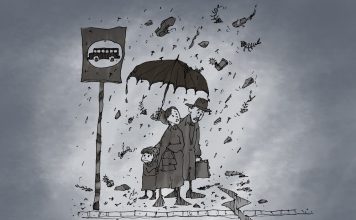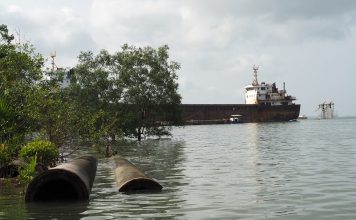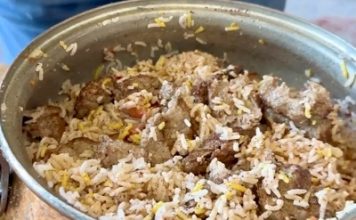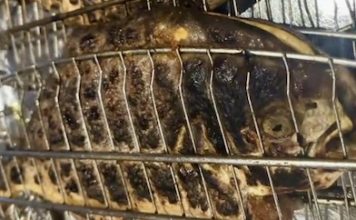By Kayhan Life Staff
Iranian households, particularly those living in major metropolitan areas and cities, are struggling with food and medicine shortages, and increasing prices of goods.
According to the latest reports, the Consumer price index (CPI) has tripled in the past three years based on the recorded inflation rate.
The CPI measures the change in average price over time of a basket of consumer goods and services. The basket includes everything from food items to cars to rent. The CPI is most widely used to measure inflation.
While consumers are spending less on food, misguided government economic policies have caused a significant shortage of products in the Iranian food market.
Supermarkets and smaller stores do not have fresh chicken for sale after a massive price increase in poultry in recent weeks.
INTERVIEW: Economist Hassan Mansoor Analyzes Iran’s ‘Productivity Plan’
Under the government’s guidelines, stores should sell fresh chicken at $1.36 a kilogram. However, most grocery stores charge customers $1.87 for a kilogram of fresh chicken.
When there is a shortage of poultry, even the government distribution centers sell fresh chicken at $1.48 a kilogram, causing people to stay in line for hours to buy a couple of whole chickens.
Mohammad Reza Sadigh, secretary of the Associations of Chicken Hatcheries, recently promised that a new plan to increase production at hatcheries would ensure that there will be enough fresh chickens in the market for consumers.
To compensate for the poultry shortage, some producers put chickens weighing less than the standard on the market. Most chickens in supermarkets weigh between 1.5 and 1.8 kilograms these days, which is below the standard 2 kilograms.
Also, the distribution and delivery of red meat, especially ground meat, has reportedly been disrupted.
Iran’s Latest Poultry Market Scam: Chicken Filled With ‘Blood Water’
“There has been a problem with the distribution and delivery of ground meat to grocery chains and hypermarkets in Tehran recently,” the Tehran-based Ensaf News said on June 29.
The report added that several supermarket chains in District 3 (between Seyyed Khandan and Mirdamad) and the northern Sa’dabad neighborhood in Tehran had received no ground meat.
Ensaf News spoke to a sales clerk at the Towhid Square branch of Ofogh Kourosh supermarket chains in Tehran, who said: “We have no ground meat delivered to us in a week. It is not only us, but no one has got any ground meat, which may be a sign that prices will go up.”
The average price of a kilogram of lamb meat has risen by 181 percent (tripled) in the past 22 months. Also, various protein products have increased in price.
Iran Dairy Industries Co. (Pegah) recently increased the price of dairy products at its Isfahan (central province), Golestan (north), Khorasan (northeast), and East Azerbaijan (northwest) pasteurized milk plants.
In a statement, Pegah said: “Given the rising price of unpasteurized milk, and because of the letter by the Consumer and Producers Protection Agency dated June 25, the company’s board of governors and the pricing committee gave Iran Dairy Industries permission to raise its prices by the maximum of 30 percent.”
The Consumer and Producers Protection Agency operates under Iran’s Ministry of Industry, Mine, and Trade auspices.
According to some reports, tea has doubled in price in recent months.
The Iranian Parenteral and Pharmaceutical Company (IPPC) recently raised the price of various serums from $0.58 to $0.70.
In an interview with the Iranian Labor News Agency (ILNA), Dr. Mohammadali Mohseni-Bandpei, a member of the Health and Medical Commission of the Majlis (Iranian Parliament), warned that unless the problem of drug shortage is resolved soon, it could cause a social, political, economic, health and medical crisis.
[aesop_image img=”https://kayhanlife.com/wp-content/uploads/2023/07/2023-06-29T000000Z_55163859_MT1NURPHO000R03ROG_RTRMADP_3_RELIGION-EID-IRAN.jpg” panorama=”off” credit=”People wait for slaughtered sheep in a temporary livestock market held by the municipality of Tehran, on the Muslim holiday of Eid al-Adha, June 29, 2023. REUTERS./” align=”center” lightbox=”on” captionsrc=”custom” captionposition=”left” revealfx=”off” overlay_revealfx=”off”]
Dr. Bandpei said that the government’s debt to the State Welfare Organization of Iran (SWO), the SWO’s debt to hospitals, and the lack of drug production caused the drug shortage in the country.
A recent report showed that the CPI has tripled in the past three years. The price of a basket of goods and services consumed by households in Iran increased from 60.5 in May 2020 to 189.3 in May 2023.
The rapid increase of the CPI creates massive problems for the government, preventing it from reforming the country’s ailing economy.
The government’s economic team cannot tackle hyperinflation, consumers’ shrinking buying power, and a massive drop in domestic food production.
According to some reports, the soil was turned over in many vegetable farms before harvesting spring tomatoes planted earlier this year.
Farmers say a massive amount of their harvest goes to waste because of the cost of picking crops and the low prices paid by processing plants, which are far from their farms. They note that the Ministry of Agriculture Jihad never compensates them.
Zabihullah Khodaian-Changi, the director of the General Inspection Organization of Iran (GIO), has blamed the high cost of agricultural goods on the mismanagement of the economy.
“The lack of planning by the officials has caused the prices of agriculture products to rise,” Mr. Khodaian-Changi said.
Khodaian-Changi also warned against the overuse of pesticides, adding that the Ministry of Agriculture Jihad must prevent farming of grains, vegetables, and fruits that require much water to grow in areas facing water shortage. These products include rice, corn, and watermelon.
According to Khodaian-Changi, farmers, processing plants, and producers complain about the pricing of their products. If the trend continues, producers will shut down their operations to cut their losses, which will cause a shortage of goods, high prices, and workers to lose their jobs.
“The inflation rate has risen by 580 percent since 2016,” Arman-e Melli newspaper reported on June 26. “The increasing foreign exchange rate has caused the prices to go up every year, and the volatile exchange rate for the dollar has impacted every aspect of daily life, so people must wait for the rate to drop before buying life’s necessities; otherwise, they cannot afford basic food products.”
The article included an interview with Javad Gholami, an economist, who said: “Prices of goods and services rise rapidly, making it impossible to predict how much an essential product will cost two weeks from today. The lower decile groups, i.e., the most vulnerable segment of society, is hit hardest by the high cost of essential goods.”
Income deciles show the average income for different income groups in society, with the poorest Iranian households being in the “first decile” and the wealthy segment of the population in the “tenth decile.”
“People’s ability to buy food and life’s essentials is shrinking,” Mr. Gholami noted. “They cannot afford to buy many goods. They also eliminate other aspects of normal life, including leisure activities, travel, and even education.”
In comments reported by the Tehran-based Didban-e Iran news website on July 1, Ali Rezaei, a member of the Majlis Economic Commission, said: “The government and the Majlis must help people to reduce dissatisfaction. We must not disappoint people so that the enemy can rejoice. We cannot play in the enemy’s court.”
“We must also speak the bitter truth, i.e., the economic conditions are not good for many people.” Mr. Rezaei, who represents Kermanshah, Shineh, Kangavar, and Harsin (in the western province of Kermanshah) electoral districts, added. “The conditions are good for some people, but bad for others. There is an imbalance between their outgoings and incomings. Some have no income at all. The government must do something for them and reduce the cost of essential goods.”
Lotfollah Siahkali, a member of the Majlis Economy Commission, has also criticized the government for failing to tackle economic problems.
In comments reported by the Tehran-based Mostaghel online news agency, Mr. Siahkali said: “By increasing the production cost for steel and copper, the government blatantly dips into people’s pocket under the guise of fighting illicit traffic of goods.”
“Corruption, nepotism, and absence of production technology are at the root of high prices,” Siahkali, who represents Ghazvin, Abyek, and Alborz (in the northwest province of Ghazvin) electoral districts, argued. “That is why, despite the exorbitant cost of transporting from Europe, a chicken imported from France to Iran costs less than one produced domestically.”


